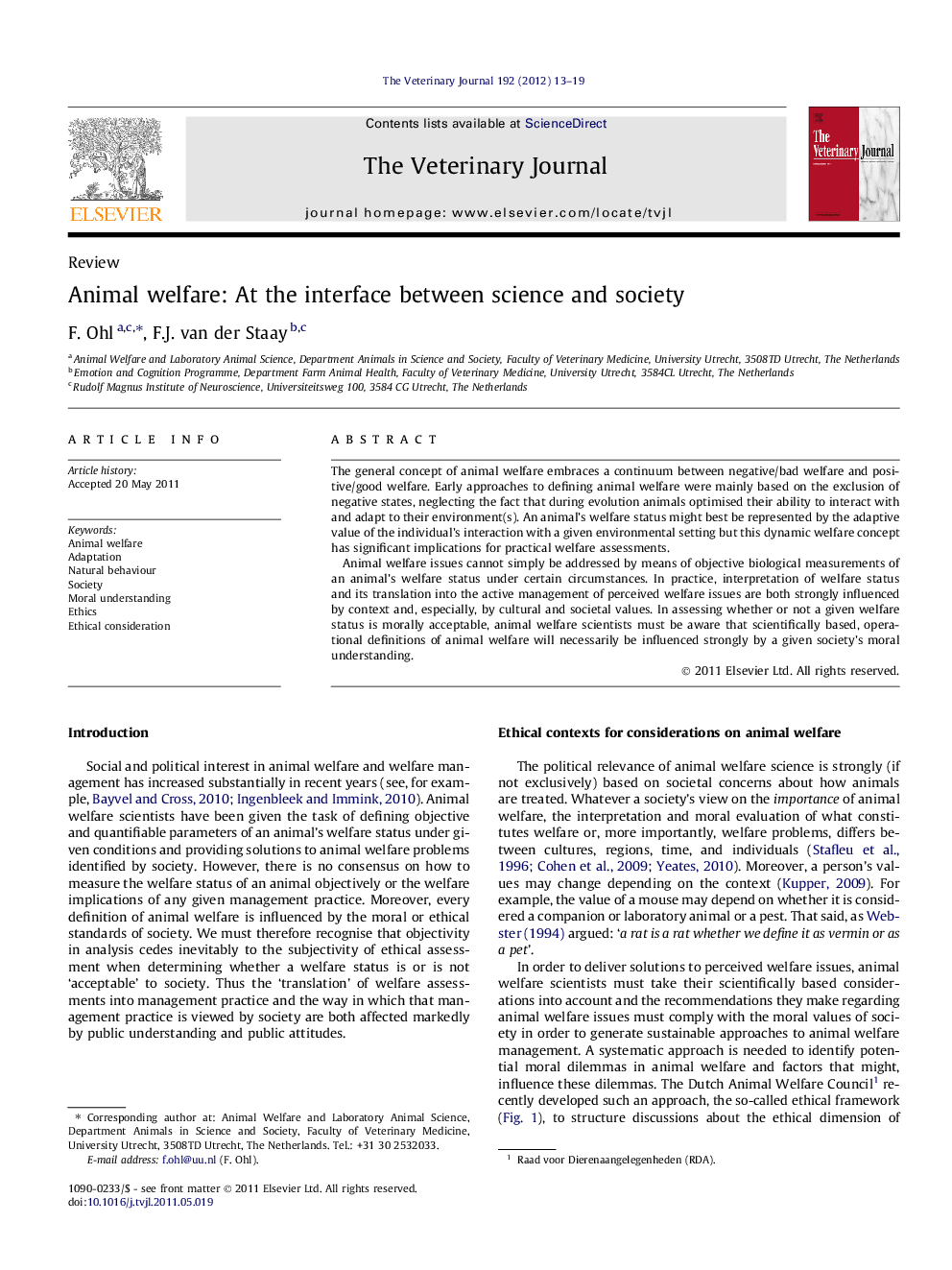| Article ID | Journal | Published Year | Pages | File Type |
|---|---|---|---|---|
| 2464470 | The Veterinary Journal | 2012 | 7 Pages |
The general concept of animal welfare embraces a continuum between negative/bad welfare and positive/good welfare. Early approaches to defining animal welfare were mainly based on the exclusion of negative states, neglecting the fact that during evolution animals optimised their ability to interact with and adapt to their environment(s). An animal’s welfare status might best be represented by the adaptive value of the individual’s interaction with a given environmental setting but this dynamic welfare concept has significant implications for practical welfare assessments.Animal welfare issues cannot simply be addressed by means of objective biological measurements of an animal’s welfare status under certain circumstances. In practice, interpretation of welfare status and its translation into the active management of perceived welfare issues are both strongly influenced by context and, especially, by cultural and societal values. In assessing whether or not a given welfare status is morally acceptable, animal welfare scientists must be aware that scientifically based, operational definitions of animal welfare will necessarily be influenced strongly by a given society’s moral understanding.
